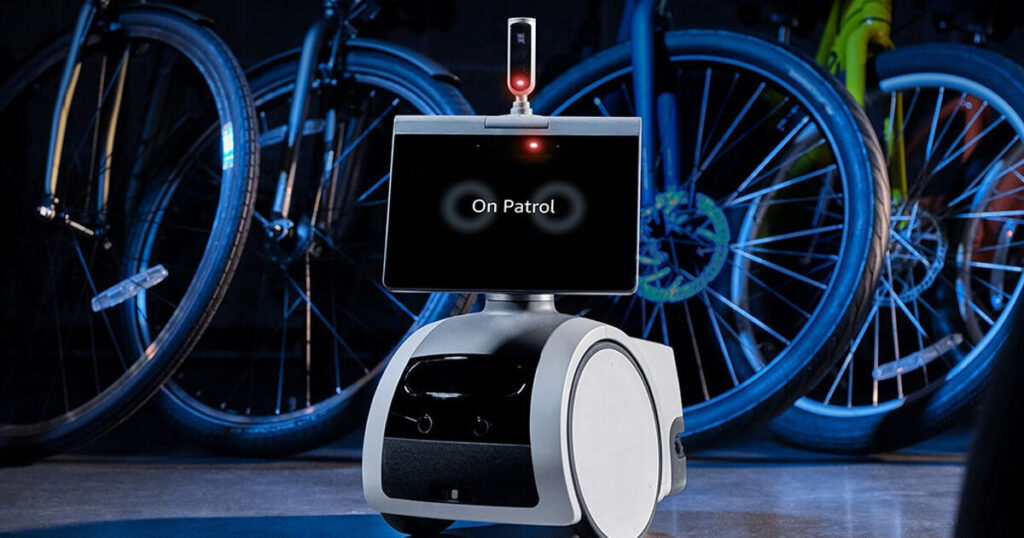In a surprising move, Amazon has announced that its Astro patrol robot, designed for small and medium-sized businesses, will cease to operate at the end of August, less than a year after its initial deployment. The news, first reported by GeekWire, stems from a leaked internal email revealing the company’s decision to shift focus.
In the internal communication to Amazon employees, Lindo St. Angel, Amazon’s Devices vice president, explained the rationale behind this decision. “I am increasingly convinced the progress we’re making in home robotics is where we should focus our resources,” St. Angel wrote in the July 3 email. “To do this, and accelerate our progress further, we’ve made the decision to wind down the Astro for Business program to focus our efforts entirely on building the best consumer robotics products for the home.”
Astro for Business, a $2,350 security robot, was never made widely available to the public. Instead, it was sold on an invite-only basis. The device was designed to patrol commercial spaces but apparently failed to gain significant traction within its limited market.
The Verge also covered this development, highlighting an intriguing future for Astro in the consumer market. According to another leaked memo, the forthcoming home version of Astro may feature conversational generative AI, which could potentially allow it to remember and understand its surroundings, answering queries about its observations.
Despite this futuristic promise, it remains uncertain how enthusiastic consumers will be about embracing such an intrusive technology.
In a bid to mitigate dissatisfaction, Amazon assured its Astro for Business customers that their robots will be rendered non-functional on August 25, just over ten months after their official launch in November 2023. However, customers will not be left empty-handed. Amazon has committed to refunding the purchase price of the robot as well as any related subscription costs, which primarily involve video storage and patrol route programming. Additionally, affected customers will receive $300 in Amazon credits as compensation.
The company has not disclosed how many units of Astro for Business were sold. Equally ambiguous is the pricing strategy for the upcoming home version of Astro. However, early reports suggest that the consumer model will be more affordable than the business variant—a necessary adjustment given the lukewarm reception and the notion that few would be willing to spend over two thousand dollars on a robot that, if not for the refund program, could become obsolete.
As Amazon continues to pioneer advancements in home robotics, it will be interesting to observe whether consumers will welcome these smart devices into their living spaces despite the skepticism surrounding their practicality and privacy implications.
Stay informed on this and more—Amazon’s Delivery Drones Face Challenges During Hot Summer Days.


